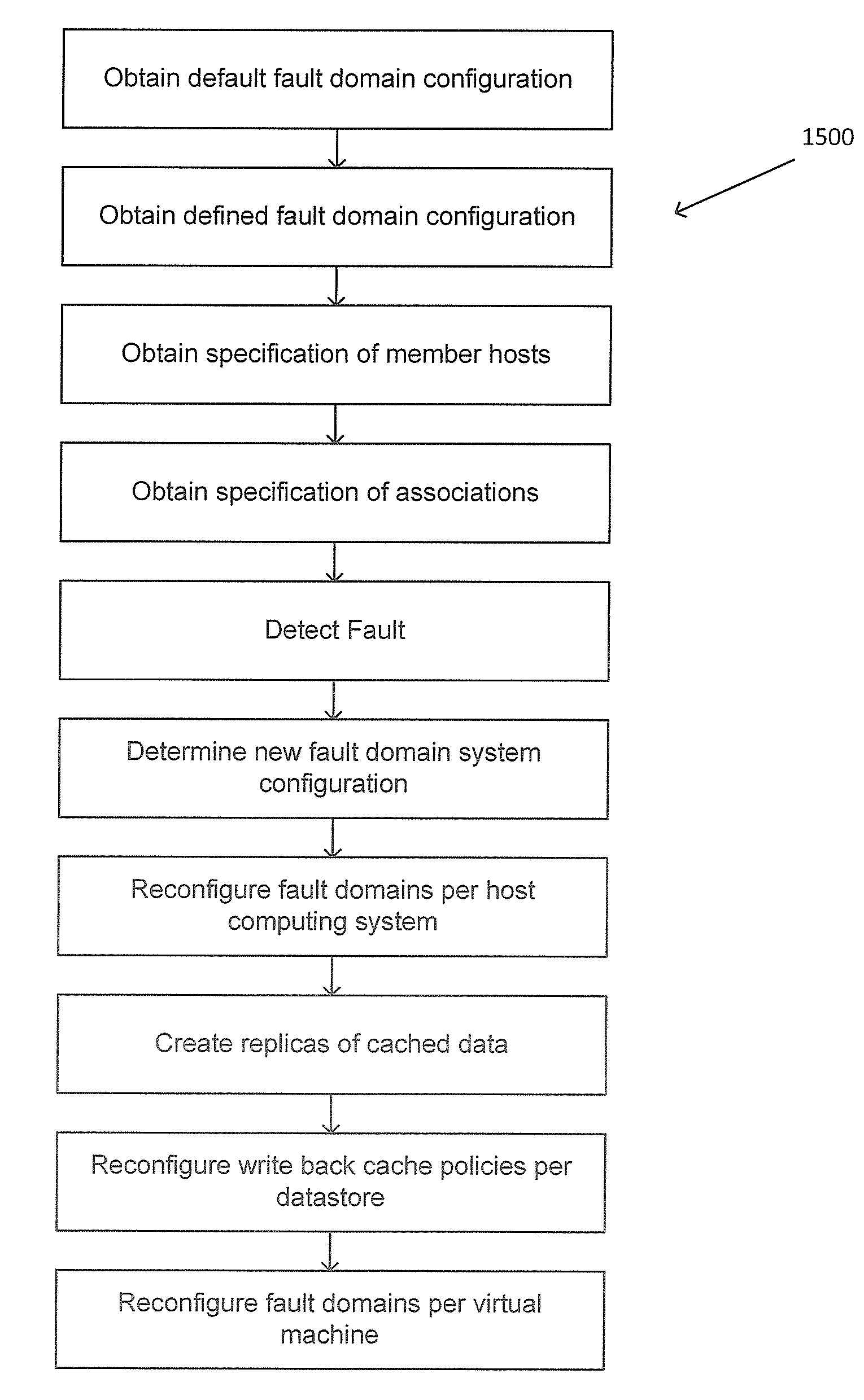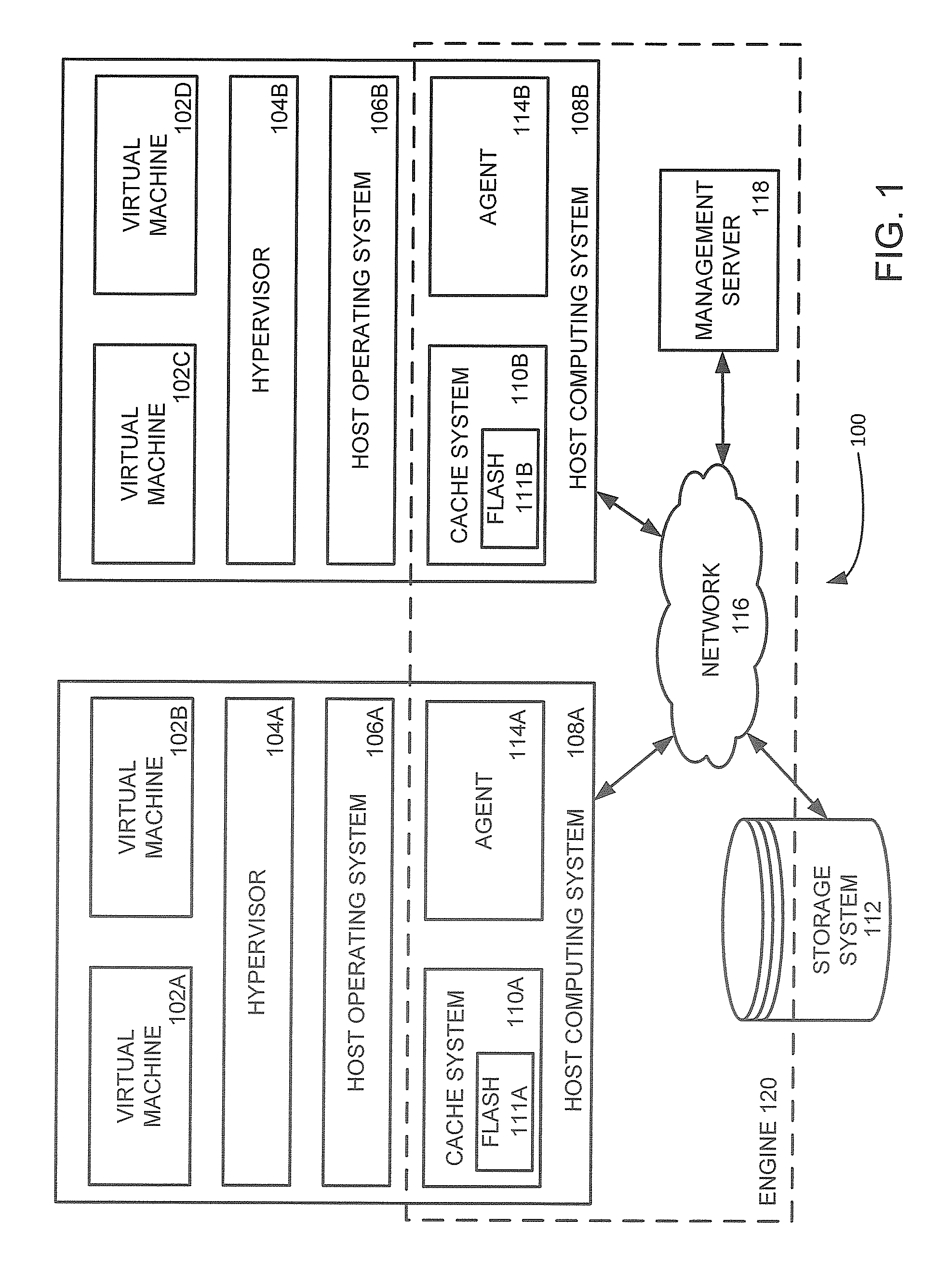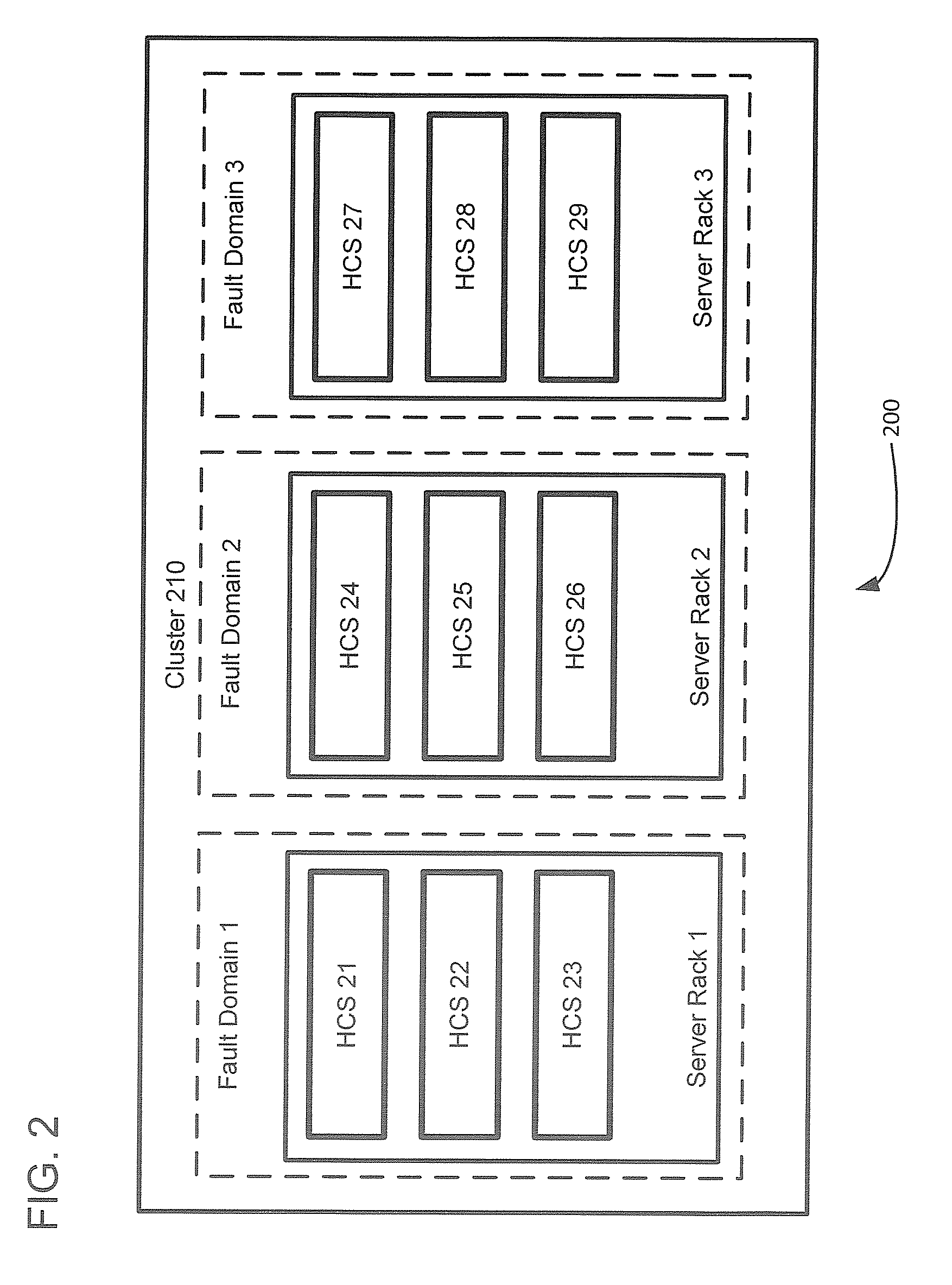Management and utilization of fault domains in distributed cache systems
a distributed cache and fault domain technology, applied in the field of distributed cache data systems, can solve the problems of loss of data replication advantages, difficulty in cache and retrieval data quickly and accurately,
- Summary
- Abstract
- Description
- Claims
- Application Information
AI Technical Summary
Benefits of technology
Problems solved by technology
Method used
Image
Examples
Embodiment Construction
[0026]Replication of data is accomplished in the present approach according to defined fault domains which reflect, either physically or virtually, the topology of a networked computing environment. In particular, defined fault domains are sets of host computing systems that can reflect different physical locations, different server racks, or any other topology of the environment. The fault domains are then used to control where cached data is to be replicated when running in a write back mode. Further, although a defined fault domain can include any host computing system in the environment, in a preferred embodiment each defined fault domain will only include those host computing systems that share a common exposure to some fault, thereby avoiding a fault occurring in one defined fault domain from affecting another defined fault domain thus ensuring the advantages of data replication. Further, unlike known data replication approaches, the present approach replicates such data accor...
PUM
 Login to View More
Login to View More Abstract
Description
Claims
Application Information
 Login to View More
Login to View More - R&D
- Intellectual Property
- Life Sciences
- Materials
- Tech Scout
- Unparalleled Data Quality
- Higher Quality Content
- 60% Fewer Hallucinations
Browse by: Latest US Patents, China's latest patents, Technical Efficacy Thesaurus, Application Domain, Technology Topic, Popular Technical Reports.
© 2025 PatSnap. All rights reserved.Legal|Privacy policy|Modern Slavery Act Transparency Statement|Sitemap|About US| Contact US: help@patsnap.com



